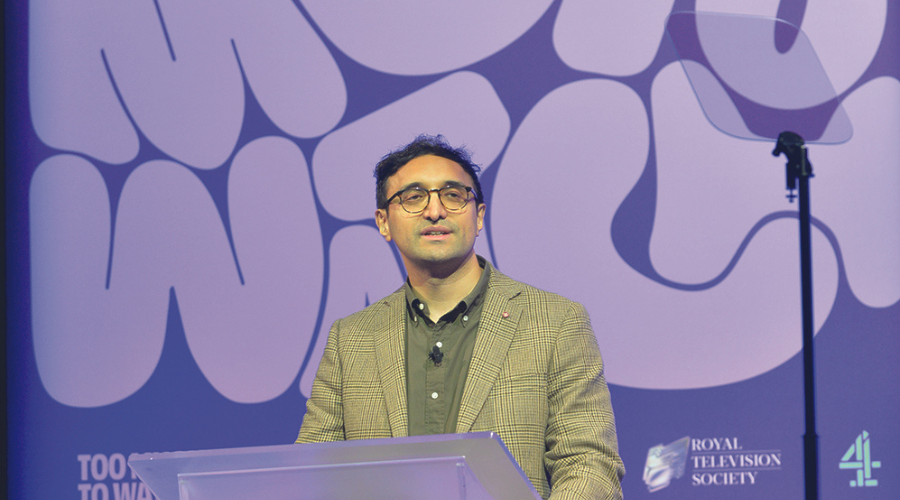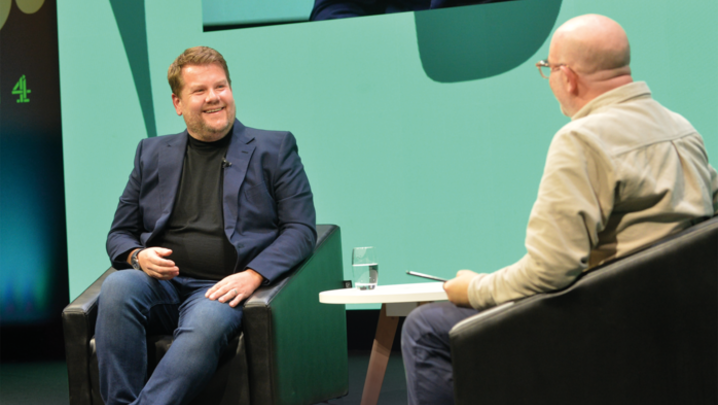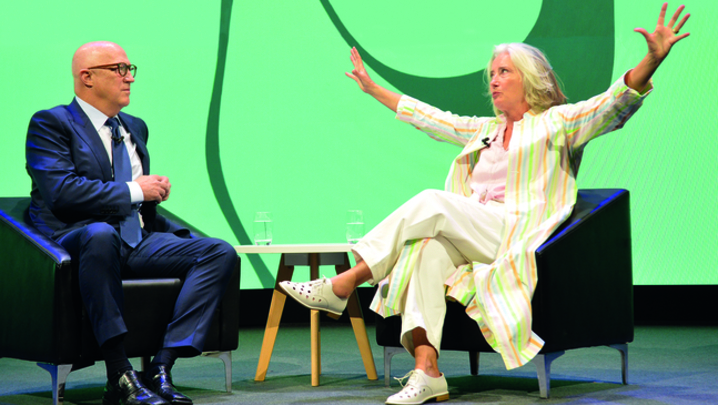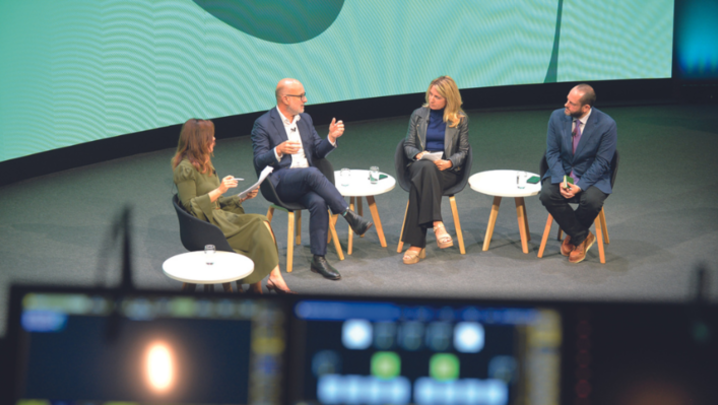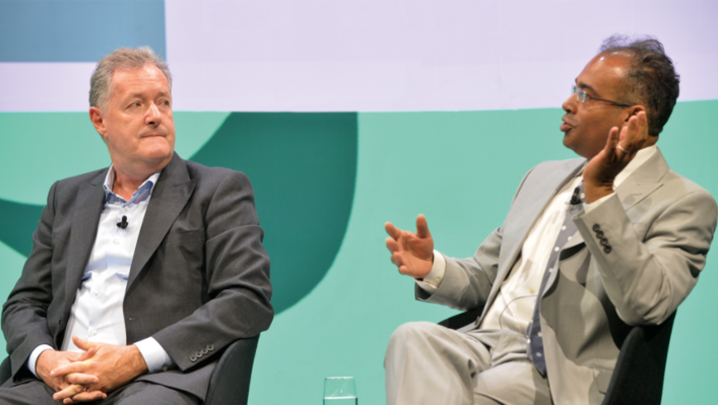A panel of leading innovators provides insight into getting content noticed
How to launch new content depends on the platform you want to launch it on was the main message from some of the leading practitioners at the cutting edge of content creation and marketing.
During an entertaining and engaging session chaired by Roughcut Television Chief Executive, Ash Atalla, it emerged that word of mouth is a key attribute, especially when it comes to relatable and shareable material.
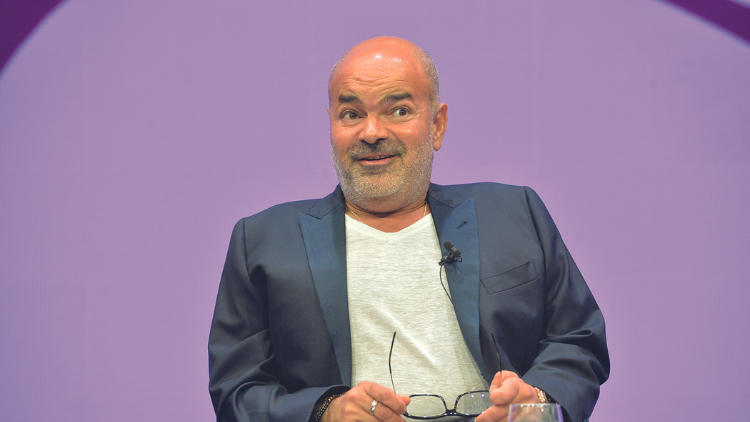
After Atalla introduced Ajaz Ahmed as “the rich man”, Ahmed, the new-media millionaire entrepreneur, whose company AKQA works with clients including Nike, outlined his central message: “Taste used to be dictated top down.” But now it isn’t.
He explained: “The studios, broadcasters, gatekeepers and reviewers could pretty much decide what would be a hit using the power of distribution, schedules… and exposure. We now live in a bottom-up world where popularity is dictated by the masses.
What this means, he said, is that spending millions on advertising “doesn’t necessarily mean that a product will become popular”.
Ahmed added: “Emotionality and familiarity are incredibly potent when it comes to popularising content; yet alone they are insufficient.
“This underscores the importance of social influence… talkability and shareability. Despite the myth, fame doesn’t happen by chance. There’s no such thing as a viral phenomena, everything needs a nudge to launch it into public consciousness.”
Jordan Schwarzenberger of Arcade Media, who manages YouTube mega-stars The Sidemen, said attention to detail was essential: “The algorithm completely dominates the experience on YouTube… it’s entirely about packaging, title, the first hour and how you frame it… it’s so much more scientific [than some other platforms].”
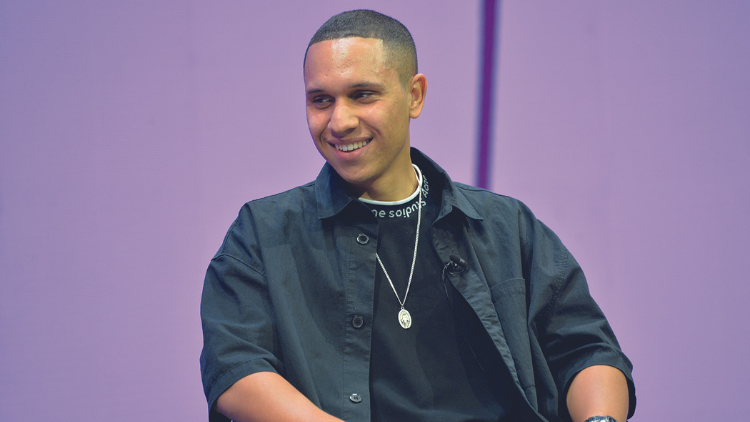
He outlined how they achieved the billion-odd views a year that The Sidemen’s channels rack up.
“These are seven friends who started playing games with each other… a friendship that started online became this channel that’s now one of the biggest entertainment properties in the UK. The key to that is familiarity: it’s being real, it’s being authentic. It’s entirely basing the content on their own love for it rather than trying to make something that isn’t true to themselves.”
High production values also help with launching new videos on YouTube. The Sidemen have 35 people in their production team, a studio in east London and several videographers on every shoot.
TikTok star Grace Keeling, aka GK Barry, has just herself and her management team. She told Atalla how she hit the big time: “It was complete accident. At a time when TikTok was a thing during lockdown and that wasn’t a job… I just started doing videos about how tragic my life was; embarrassing things that happened to me – it just completely blew up from there.”
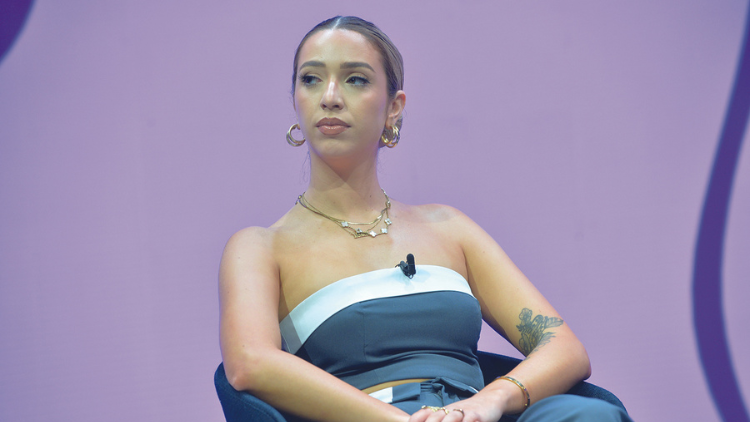
Atalla asked what she had learned that helped her videos take off. “I think the reason social media creators can sell stuff is because we’re relatable – people trust us because we’re very open, we put ourselves out there.
“When it comes to promoting something, I just have to do it my own way, then people will watch it. Whereas if I use certain briefs, it won’t have the same shtick. If something’s fake, people won’t be interested.”
“What are you learning about the kind of things your fans want?” asked Atalla. “I’ve learned that people love tragedy. If I’ve had a horrible day and I’m ready to call it quits… that will go viral, 100%. A million views. If I’ve had a great day, no one cares. People love a bit of trauma.”
Atalla pointed out that she was the right person at the right time. “It’s about timing,” agreed Keeling, joking: “Thank God for Covid. I know I shouldn’t say that. Everyone was on their phones and now I have a career.”
Why is it that Netflix sometimes launches shows with very little fanfare, and sometimes with a lot, Atalla asked Rajiv Nathwani, the streamer’s Senior Director of Marketing for the UK, Ireland and Israel.
“Our marketing has two parts to it: one is on the service, on the Netflix product itself, the personalisation and the recommendation on there. That is our most powerful marketing tool,” explained Nathwani. “The top 10 has been helpful for people to understand what’s popular and trending. The better it gets to know you, the better it gets to know your tastes.
“Then, there’s what we do off service and the way we think about that is earning our way into culture rather than buying ourselves into awareness. For me, it’s less about big billboard campaigns telling people this is on Netflix this coming weekend.”
"I've learned that people love tragedy... if I've had a great day, no one cares. People love a bit of trauma"
Instead, he said, it is about “not front-loading campaigns, it’s waiting until the show launches on Netflix. [Then] listening to how consumers are engaging, thinking about what’s resonating with them, then using that to create our marketing campaigns in real time.”
With Squid Game, there were no billboards. “We didn’t see that one coming,” he admitted, but Netflix used “iconography” from the show and quickly set up real-world ways for fans to interact and amplify it. There were stunts such as having dolls from the show in shopping centres around the country so people could create TikTok dances with them.
At Netflix, often about 50% of the marketing budget is kept for work after a show’s launch. Part of the reason, said Nathan, is: “We’re in a world of TikTok, where everyone is a content creator.”
His team looks for things people are using from Netflix shows on social media: “How are they using the audio, how are they duetting with the scenes, what are the scenes that resonate and how do you help fans of the show then take that content and give it a life of its own?”
He denied that the algorithm commissions shows: “It’s not commissioning by algorithm, it’s data to inform judgement.… We have a commissioning team based here and they’re humans.”
To laughter from the audience, Atalla joked: “I don’t know, I’ve met some of them, they’re not human.”
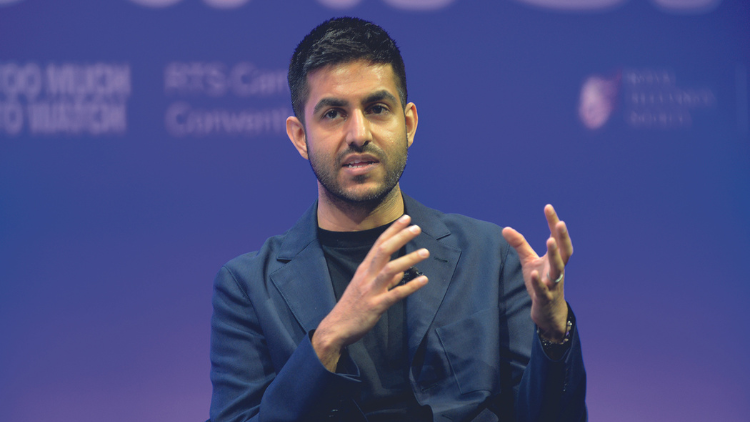
The panel then discussed what broadcasters can learn from the new platforms. “Should broadcasters be using TikTok to try things out?” Atalla asked. “Do you think: ‘What are they doing spending a year to make something that turns out to be shit?’”
“One hundred per cent,” replied Schwarzenberger, who recalled going to an ITV Studios event and asking why they were not using short form, “where you can, for the fraction of the budget, test and see if the show can resonate?”
Keeling reminded the convention that specialist platform experience was needed. She found it harder to reach people when she launched a YouTube channel. “TikTok, when you do a video, it’s very easy to go viral, you can use a trending sound [or] talk about a topic that’s trending and you know you’re going to get views,” she said.
“[On] YouTube...you’ve got to post a video, but market it a different way because people aren’t going to stumble across it.”
Schwarzenberger concurred, revealing that The Sidemen have three people working solely on YouTube thumbnail images.
Ahmed warned that leaving the launch of something to algorithms alone is not enough because it requires “the time-tested ingredient of human affinity” overlaid with fundamental marketing principles. He highlighted Hit Makers author Derek Thompson’s aphorism as a starting point: “To sell something surprising, make it familiar, but to sell something familiar, make it surprising.”
Session Twelve of the Too Much To Watch convention, ‘How to launch new’, was chaired by Ash Atalla, CEO of Roughcut Television. The panellists were: Ajaz Ahmed, Founder and CEO, AKQA; Grace Keeling aka GK Barry, comedian, digital creator and presenter; Rajiv Nathwani, Senior Director, Marketing, Netflix UK/IE/IL; and Jordan Schwarzenberger, Co-founder, Arcade Media, The Sidemen. The producer was Diana Muir.

